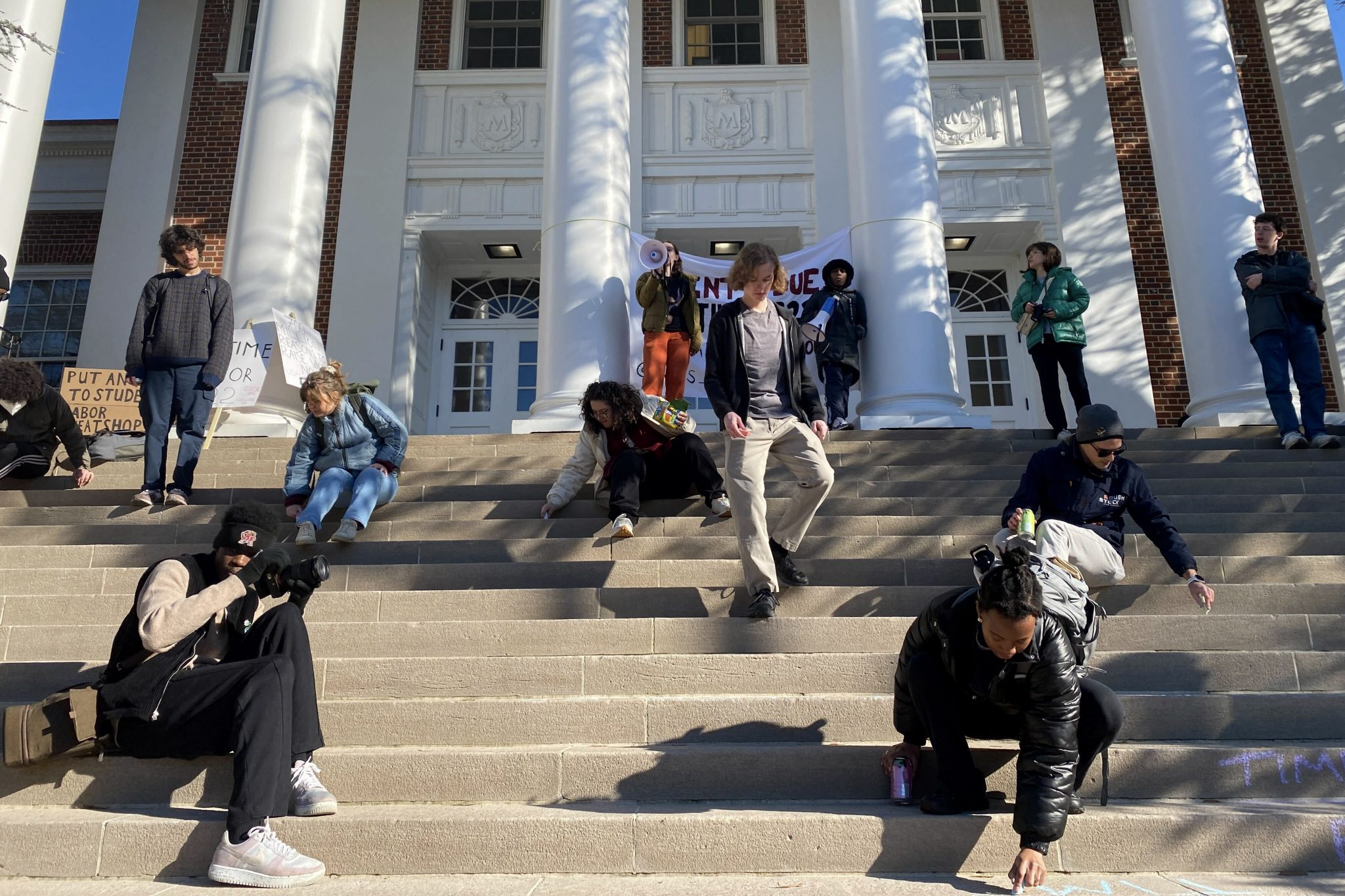Views expressed in opinion columns are the author’s own.
Last year, the University of Maryland saw an explosion of student activism. From sit-ins to marching to mass attendance of Student Government Association meetings, student activism at the university blossomed in a way I’ve never seen before. The last time I saw a wave of activism similar to this was in 2020 for the Black Lives Matter movement.
Now, students are tired and need a break. Activism is exhausting and this fatigue can be dangerous not only for student activists but also for the causes that we are fighting for. In pushing ourselves to go above and beyond for social justice, we reach a point where we experience burnout — one that requires us to step back and recuperate, ultimately having to leave our cause behind, at least temporarily.
This university needs to support its beleaguered student activists through more accessible and focused resources, be that through the counseling center, more administrative involvement in community spaces, or simply educating our campus on the realities of student activism.
In addition to the exhaustion that accompanies activism, there is a culture that requires student activists to be engaged at all times. There is never a possibility of giving yourself a break, because people expect you to be involved and have an opinion on everything.
I know I’ve always felt a deep pressure to engage and go to demonstrations, sit-ins, marches and everything in between. People have come to me and told me that I’m simply not doing enough if I’m not involved or don’t have a strong opinion. There’s never a benefit of the doubt or a moment of grace — our nation is so polarized that everything is binary. Student mental health is often pushed to the back burner because we have to be engaged politically. While political engagement is important, it reaches a level that can spell complete exhaustion for our student body.
There is a need for student support spaces. And one would think that those spaces would come from our university. After all, most students have access to resources on campus and expect to be supported by our school. The university has a diversity and inclusion office and has created a task force to address antisemitism and Islamophobia on our campus. After hours at a sit-in on campus or lobbying in Washington, D.C., what initiatives exist to support student activists? Where is the access to counseling for student activists? Where is the university’s commitment to uplifting its student activists?
This university is supposed to be committed to helping us, supporting us, and giving us the resources we need to be the best people we can be. Our school needs to provide us with a safe space to recuperate. At the counseling center, there should be a space for students to come together, rest and find new strength to continue their fights. Group therapy sessions would provide a place for students to discuss what they’re feeling and what support they are looking for. An open hotline specifically for student activists gives them the freedom and ability to call and ask for support from the counseling center.
In addition, administration needs to provide students with spaces to talk to them and communicate what issues we face and how they can support us further. Town hall opportunities with administrators would give activists room to air out the issues they have, and the manner in which they want the administration to support them. Administrators must go beyond a task force and find a new path forward for student activists.
The university needs to bring in experts who are well-versed in helping student activists, such as counselors who know how to work with them to find the best pathways to avoid burnout. Creating community groups and offering reflection times and spaces would go even further, making our campus not only more comfortable, but safer. Educating other students and campus police about protests should also be a priority for administration.
We see activism on our campus every day. People are tired and there’s a call to keep fighting — the mentality of politics is one that doesn’t spare a moment to breathe. The causes that students fight for affect all of us, every day. Without university support, we exist in a bubble that often seems like it will pop underneath us, leaving us to fall to the ground without support.
Jahnavi Kirkire is a senior government and politics and public policy major. She can be reached at jkirkire@umd.edu.



